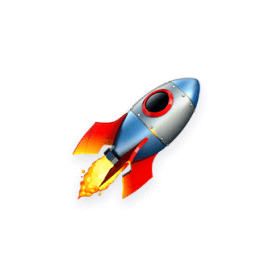Types of Trading Instruments for Diversified Investments
Navigating the financial markets is akin to exploring an intricate universe brimming with diverse celestial bodies. Among these, trading instruments are the stars – they are the fundamental entities through which investors express their market philosophies. A robust understanding of the types of trading instruments can illuminate the path for investors and traders alike. This article will explore the varied financial instruments available for trading, including forex instruments, commodities, and CFD stocks, each offering unique opportunities and exposure to the markets.
Understanding Trading Instruments
Different types of trading instruments can be classified based on their characteristics the markets they operate in and the strategies they support. For instance, forex trading online offers a paced environment while commodities provide a stable investment option. Additionally, CFD stocks offer flexibility, for traders, with varying styles and risk tolerances. Each instrument serves a purpose and appeals to types of traders.
Forex Instruments: The Currency Play
Forex instruments are the currencies from across the globe, traded in pairs, such as the Euro against the US Dollar (EUR/USD) or the British Pound against the Japanese Yen (GBP/JPY). Forex trading involves the simultaneous buying of one currency while selling another, with the exchange rate fluctuation dictating the profit or loss.
Pros:
- Liquidity: Forex markets are the most liquid markets in the world, facilitating easier entry and exit.
- Market Hours: The forex market operates 24 hours a day during the week, offering continuous trading opportunities.
Cons:
- Volatility: Forex markets can experience sudden swings due to economic reports, policy decisions, and geopolitical events.
- Complexity: Understanding forex trading requires knowledge of macroeconomic fundamentals and geopolitical factors.
Commodities: The Tangible Assets
Commodities are physical goods that can be traded on dedicated exchanges. These include energy resources like oil and natural gas, agricultural products like wheat and coffee, and metals like gold and silver. Commodities trading can serve as a hedge against inflation and a diversification from traditional equity markets.
Pros:
- Diversification: Commodities often have a low correlation with stocks and bonds.
- Inflation Hedge: They can maintain value or appreciate during times of inflation.
Cons:
- Market Factors: Commodity prices can be highly susceptible to environmental and political changes.
- Storage and Delivery: Physical commodities can incur storage costs and complexities around delivery contracts.
CFD Stocks: The Equity Derivatives
Contract for Difference (CFD) stocks allow traders to speculate on the price movement of stocks without owning the underlying shares. CFDs are derivative products where traders agree to exchange the difference in the price of a stock from when the contract is opened to when it is closed.
Pros:
- Leverage: CFDs provide the ability to trade with leverage, magnifying both potential profits and losses.
- Short Selling: Traders can easily short sell CFDs if they anticipate a drop in stock prices.
Cons:
- Risk of Leverage: While leverage can increase returns, it also amplifies potential losses.
- Overnight Charges: Holding CFD positions overnight can incur additional costs.
Types of Trading Instruments
The financial markets are replete with a wide array of trading instruments, each serving different financial strategies and risk profiles.
Equities
Equities, or stocks, represent ownership in a company. When you buy a share of stock, you’re buying a piece of that company's future profits and growth.
Bonds
Bonds are debt instruments issued by corporations or governments. Investors lend money to the issuer in exchange for periodic interest payments and the return of the bond's face value at maturity.
Options and Futures
Options grant the right, but not the obligation, to buy or sell an asset at a specified price before a certain date. Futures are contracts to buy or sell an asset at a predetermined future date and price.
Exchange-Traded Funds (ETFs)
ETFs are funds that track indices, commodities, or baskets of assets like an index fund but trade like a stock on an exchange.
Conclusion
The financial universe offers a plethora of trading instruments, each with its characteristics, risks, and rewards. Whether you gravitate towards the liquid realms of forex trading, the tangible world of commodities, or the leveraged territory of CFD stocks, the key is to align your investment choices with your financial goals and risk tolerance. By understanding the pros and cons of each type of trading instrument, investors can make informed decisions and strategically navigate the financial markets.
31 Jan 2024







